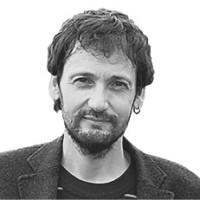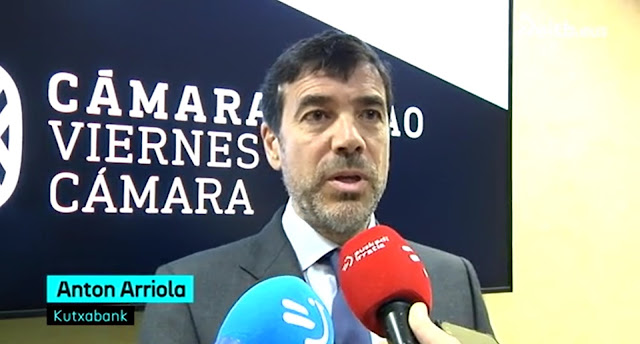I have been talking to a colleague of all the aids to reduce the ‘digital divide’: from the private sector, from Europe, from the state, from the government… Among the quotation marks I place the digital divide, as many problems that existed before its implementation are called digital gaps. So those of us who are working on this issue, on the pretext of the digital divide, we see that we are intervening in many other problems. Among other things, we say that a person who cannot read has a digital divide when he cannot do a digital processing, but this problem would also exist without a digital transformation. We call the digital divide a child with comprehension problems not to do work online, but their problem has another origin. I do not know whether these other tasks we are doing in the name of the “digital divide” are for good or for bad. Maybe, although not everything is a digital divide, we're strengthening inclusion. Or maybe we're just patches to avoid tackling the real problem.
In this way, moreover, we cannot apply our critical views, because we often work under other forces. In this regard, I found the recent European Declaration on Digital Rights and Principles for the Digital Decade of the European Commission interesting. In this regard, it is a question of seeking open-ended digital sovereignty, and digital transformation should have the following values: putting people at the centre of digital transformation; supporting solidarity and integration through connectivity, education, training and digital capabilities; reinforcing the importance of freedom of choice in our relations with algorithms and artificial intelligence systems; promoting participation in the public digital arena; enhancing the security, protection and empowerment of personal data;
Bidali zure iritzi artikuluak iritzia@argia.eus helbide elektronikora
ARGIAk ez du zertan bat etorri artikuluen edukiarekin. Idatzien gehienezko luzera 4.500 karakterekoa da (espazioak barne). Idazkera aldetik gutxieneko zuzentasun bat beharrezkoa da: batetik, ARGIAk ezin du hartu zuzenketa sakona egiteko lanik; bestetik, egitekotan edukia nahi gabe aldatzeko arriskua dago. ARGIAk azaleko zuzenketak edo moldaketak egingo dizkie artikuluei, behar izanez gero.
A few weeks ago, on Diputación Street, in the centre of Vitoria-Gasteiz, two men threw a homeless person off the small landing outside the place where he slept. In addition to being thrown away, a metal railing was immediately placed in front of the lonja. Although the place... [+]
Egypt ' s urban planning plan for the Gaza Strip has recently been expanded. A drawing shows the streets, buildings and imagery of the future on a reality that still smells of shrapnel and explosives. The urban planning proposal, used as another bomb shot. Individual house... [+]
Bizitza erdigunean jartzeko abagunea ikusi genuen feministok zein ekologistok Covid-19 pandemia garaian. Ez ginen inozoak, bagenekien boteretsuak eta herritar asko gustura itzuliko zirela betiko normaltasunera. Bereziki, konfinamendu samurra pasa zutenak haien txaletetan edo... [+]
Segurtasun falta dagoen irudipena handitu dela azaldu du Eustaten azken txostenak. Gurean, Trapagaranen, Segurtasuna orain, delinkuenteen aurka manifestaziora deitu dute herritar batzuek.
Bi izan dira sentsazio hori zabaltzeko arrazoiak. Batetik, udalak Udaltzaingoaren... [+]
There are those who subscribe to portals to sell their homes because they would like to buy a house. From time to time they even make appointments to see the houses, and I am sure that the seller knows that these people will not buy the house, not because they find it in the... [+]
Haurtzaroaren amaiera eleberri distopikoa idatzi zuen Arthur Clarkek, 1953. urtean: jolasteari utzi dion gizarte baten deskribapena. Eta ez al da bereziki haurtzaroa jolasteko garaia? Jolasteko, harritzeko, ikusmiratzeko eta galdera biziak egiteko unea. Ulertzeko tartea zabalik... [+]
The writer Juan Bautista Bilbao Batxi worked in a boat and sent the chronicles of his travels to the newspaper Euzkadi. Thanks to this, we have interesting chronicles in Basque from around the world from the beginning of the 20th century. In June 1915, he made his stop in... [+]
The lights of the theater are on. Discreetly, I’m walking on the steps: the school performance is about to begin. The young men run to their seats, full of life and joy. The retreat has the taste of liberation, but this feeling of freedom speaks Spanish or French. This... [+]
From linguistics or glotophobia and, of course, hatred against Basque, we have often seen our Basque become the dandruff of all sticks. Last of all, the president of Kutxabank, Anton Arriola, has been shaking our language and giving us galantas.The President of Kutxabank,
... [+]
Do not look for this connection from Ezkio or Altsasu, let alone crossing the Ebro River through Castejón. The connection, or rather the connections, between the Basque Y and the AVE of Navarre is already a reality. It is these links in the plural that should concern us and... [+]
Don't make a fuss, don't confront, don't victimize... and obey. As oppressed subjects, in this case as Basques, we talk, how many times have we had to listen to them? Ironically, two years ago, at the Euskalale Independentiston Meeting, Esne Arzallus said: "We have arrived here,... [+]
Aurten "Israel Premier Tech" txirrindularitza talde israeldarra ez da Lizarraldeko Miguel Indurain Sari Nagusia lasterketara etorriko. Berri ona da hori Palestinaren askapenaren alde gaudenontzat eta munstro sionistarekin harreman oro etetea nahi dugunontzat, izan... [+]
Intsumituek denbora luzez egindako borroka gogorra eta mingarria izan zen, baina irabazi zuten, eta garaipen hura behin betikoa izango zela uste genuen, atzera bueltarik gabea. Baina badirudi, politikari batzuen ahotik aterata, eskalada militaristari gorazarre egin eta berriz... [+]
Zenbait estatistikak berretsi dute begiak hondar urteotan ikusten ari zirena: gimnasioak (eta estetika-zentroak eta nolako-edo-halako-terapia eskaintzen duten negozioak) nabarmen ugaldu dira gurean. EITBk plazaratutako datu bat emateko: EAEn 2010-2019 urteen bitartean, zazpi... [+]





















